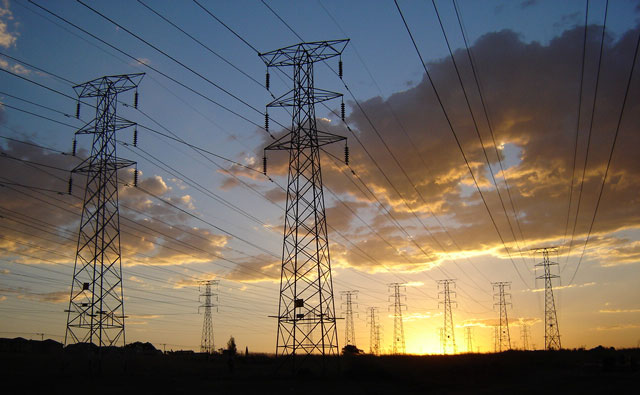
The unexpected delay in processing the Independent Systems and Market Operator Bill in parliament sends the wrong signals to investors, creates uncertainty in the market and hinders those trying to enter the electricity market, according to independent power producers.
The bill is intended to establish an independent systems and market operator (ISMO) to manage the country’s power system and make decisions about planning, allocation and procurement regarding new entrants into the electricity market, which will compete with state utility Eskom.
Parliament’s portfolio committee on energy completed its work on the bill and delivered its report to the national assembly, and the bill was due to go to the national council of provinces for further deliberation. But it emerged late last month that the bill, which falls under the department of energy, has been sent back to the portfolio committee.
South Africa faces a power shortage and, in the next 20 years, will need to build 40GW of new generating capacity. Eskom has repeatedly stated that it cannot fund this alone and will require the entrance of independent producers.
An independent systems and market operator was highlighted in the national development plan as necessary to widen participation and accelerate investment in the electricity sector.
Democratic Alliance energy spokesman Lance Greyling recently described the move as “unprecedented” and said the executive was interfering in the processes of parliament “in order to avoid Eskom relinquishing its control of the grid”.
But parliamentary officials denied this. Portfolio committee chair Sisa Njikelana said the bill was resubmitted following a request from the portfolio committee on public enterprises, which wanted to “clarify” some issues regarding the bill.
He could not say what they were. Attempts to reach the public enterprises committee chair, Peter Maluleka, were unsuccessful.
Parliament spokesman Luzuko Jacobs said that referring the bill back to the committee was raised in a meeting of parliament’s programme committee early this month.
It was a multiparty structure and there had been no objection to the move. Later, through a motion in the national assembly, it was “unanimously” adopted, he said.
The question of whether the ISMO should incorporate the transmission assets, essentially the wires that transport the country’s electricity and which Eskom owns, was discussed during deliberations on the bill.
The committee determined that the processing of the bill should go ahead, but it recommended in its report to the national assembly that the ministers of energy, public enterprises, finance and co-operative governance and traditional affairs should conduct a due diligence study on the feasibility and implications of the transfer of transmission assets to the ISMO and to submit a final report to the national assembly by 30 November 2013.
Making “no sense”
It also recommended that a cost-benefit analysis of establishing a transmission-system operator “or any other arrangement suitable to the South African situation” be undertaken.
But South African Independent Power Producers’ Association MD Doug Kuni said sending back the bill made “no sense”.
Since 2008, the country had been in the grip of a power crisis, but the state had done little to give investors confidence that it was working to address the regulatory or institutional challenges facing the sector.
“[The government’s] position on the structure of the sector oscillates all the time. It says it wants independents producers, but creates confusion in the market,” he said.
The energy department and the treasury have facilitated the entry of independent green energy providers through the renewable energy independent power producer procurement programme.
Under the programme, which is entering its third and final bidding phase, independent power producers can sell power directly to Eskom under a purchase agreement guaranteed by the treasury.
The programme has boosted the growth of renewable energy, but it represents only a small portion of the new capacity required by the grid.
According to Rajen Ranchhoojee, the projects and energy director and head of Africa at the law firm Routledge Modise, the complexity of the bidding programme has made it increasingly expensive for investors, encouraging them to look to other African countries for more competitive investment opportunities in renewable energy and alternative power projects.
The cost of bidding compliance was estimated to be between US$1,5m and $2m, he said, roughly twice as expensive as in other parts of the world.
As the programme progressed, the maximum or ceiling tariffs offered per kilowatt for a number of technologies had also dropped substantially.
The ceiling tariff offered for solar photovoltaic in round one was R2,85/kWh, but this had dropped to R1,40/kWh by round three, a decrease of 51%, he said.
That meant the cost of simply submitting a bid was becoming too high when weighed against the risk of a bid being unsuccessful.
Other problems included the regulatory compliance requirements of the programme and funding, Ranchhoojee said.
There was enough cash in the market, but insufficient human resources within the banking sector, he said, limiting banks’ abilities to assist with these projects.
Ranchhoojee said that, given the government’s other large infrastructure investment requirements, it was very unlikely to stand as guarantor to Eskom for those kinds of deals in the future.
The government had a better credit rating than Eskom and, although the utility was very large and relatively stable, without government’s backing, investors were “losing a layer of security”.
But the department said it had received “very positive feedback” about the programme, which was currently ranked the seventh most attractive such programme globally.
It had received international recognition and garnered several international awards, including the best renewable energy infrastructure programme in the world for 2012 by the Global Leadership Infrastructure Programme in New York in March this year. Eskom did not respond to requests for comment. — (c) 2013 Mail & Guardian
- Visit the Mail & Guardian Online, the smart news source

